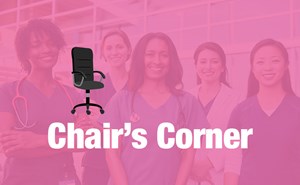
Advice for Our Younger Selves
COVID had nothing to do with our personal burnout. Shocking as that might seem, we were burned out (or better term — morally injured) from working in emergency medicine WAY before that. In fact, two out of the three of us even quit working clinically in medicine for a time to regain our sanity. By the time COVID hit, we’d already bottomed out and returned to working clinically with a much better mindset. By then, the three of us had additional training in integrative medicine, life coaching, and health and wellness coaching. We learned that, although working in medicine is challenging by its very nature, we were unknowingly piling on additional and unnecessary suffering.
The versions of ourselves before our “burnout crises” were hurting, feeling stuck, and feeling so alone. We thought that we were the only ones who were failing at finding a way to keep both our home and work lives off of life support. If we could go back, here are just a few of the pearls of advice that we’d give ourselves.
Numbing Out Isn’t The Solution
“Hi, my name is Amanda, and I’m a professional bufferer.”
When I was in the worst days of my medical career, I’d frequently say things like, “I just need to numb out.” In the life coaching world, the term for numbing behaviors is buffering. Buffering is anything that we do to avoid feelings, especially negative feelings. Personally, I’d use food, alcohol, and binging TV shows for hours. My favorite mind-numbing series was anything in The Real Housewives franchise to get my mind off work. Others may use shopping, pornography, or scrolling through social media, among others. Numbing isn’t necessarily a problem in small amounts, but many of our favorite buffering choices lead to net negative consequences, such as gaining weight, sleeping poorly, wasting time that could have been better spent, and disconnecting from loved ones.
As emergency physicians, we experience vicarious trauma on a grand scale. We bear witness to the worst days of people's lives. No one taught us that, as human beings, it’s not unusual to share the pain and devastation in a very real way. Our bodies can’t tell the difference between witnessed trauma and our own personal trauma. So, it was no wonder I felt negative emotions welling up shift after shift. It makes sense that I’d want to escape them, especially since vulnerability wasn’t an option modeled in training. But, avoiding negative emotions in the moment was leading to even more negative emotions in the future — in feeling unhealthy, not accomplishing my to-do list, not getting good sleep, and isolating myself, etc.
Allowing myself to be human and learning to process the grief, frustration, and despair I felt was a lot healthier in the end than trying to suppress or distract from all of those negative emotions. In the moment, it can be uncomfortable to process emotions, but that’s okay. If we suppress negative emotions, they just go down to the basements of our souls, lift weights, and come out stronger later.
Don’t Take Things Personally
Very little of what happens at work has anything to do with you personally. If a patient yells curse words at us, it can feel like a personal attack, but they don’t even know you. Ultimately, how a person acts says more about them than you. That patient is most likely expressing fear and loss of control as anger. For a lot of people, anger feels more powerful than the underlying emotion behind it. That’s all it is — it never was about you.
Another example where it’s easy to feel personally attacked is if a consultant gives pushback. In the moment, it can feel like the consultant doesn’t like you or agree with your care, but maybe it’s that they’re overwhelmed with their workload, they’re hungry, or things are going badly at home. It’s easy to try to read between the lines and make it something about you, but we’d advise our previous selves to remain curious and gather more information before jumping to conclusions. People who go into medicine usually start out as kind people. It may be a series of things — none of which have to do with you — that are the true explanation to gruff behavior.
Perfectionism is Toxic
Don’t be a perfectionist. The phrase “I’m just a perfectionist” is something some of us say with a little bit of self-satisfaction. The problem is that perfection is maladaptive. It’s not attainable in pretty much any sphere of life, especially in emergency medicine. You will miss diagnoses at times. You will miss procedures occasionally. Your house will not stay perfectly clean all the time. Your kids will not be perfectly behaved. Life is messy — accepting that will enhance your experience so much.
To be happy and well, strive for excellence, not perfection. Interestingly, evidence suggests that we enter medical school as high achievers, not perfectionists. High achievers do things to push their capabilities and grow; they set big goals but know there will be mistakes along the way. By the second year of med school though, something about our training starts pushing us more toward a maladaptive perfectionism. Instead of healthily striving to do our best, we switch to an unhealthy need to be perfect in order to avoid criticism. Perfectionism is predominantly based on fear of judgment. As perfectionists start to place their self-worth on flawlessness, it becomes increasingly urgent to keep mistakes hidden, and that’s where shame thrives. Perfectionism is demoralizing and paralyzing because perfection is, unfortunately, not possible. The goal is to do the best work you possibly can and to congratulate yourself on your effort. Never, ever, pile shame on yourself for any reason. Shame will only make you less able to do the work you need to do, and it will stunt your growth and progression.
Prioritize Your Mental and Physical Health
Take care of yourself. You only have one body and one brain, and contrary to what you may believe, you are not superhuman. If you do not prioritize your physical health, your body will break down. More than that, if you don’t prioritize your mental well-being, no one will do it for you. Find a place to process all the secondary trauma you are experiencing through your work so that it doesn’t create more problems for you down the road.
This doesn’t make you weak — being smart enough to seek help makes you wise and strong. So, eat some healthy food, move your body, get enough sleep, and talk about your stressors. Medicine is a marathon, not a sprint. You need to pour from a cup that is overflowing rather than dried up and empty. There will always be more patients, more shifts, more duties, and more responsibilities. However, there is only one you, and we need you to be healthy.
Don’t Wait — Enjoy the Journey Now
If you have ever said to yourself, “it will get better when…,” then this is for you. Most of us are delayed gratification experts and are, therefore, prone to "arrival fallacy.” Arrival fallacy, which was initially coined by Tal Ben-Shahar, PhD, is the belief that, once a goal is accomplished, it will result in lasting happiness. However, we have proved over and over again that the thrill of accomplishing a goal is temporary. Remember when you thought, “If only you could get into med school, then you’d be happy forever?” Then, once you get there, the goal becomes, “If you match in the program you want, then you’ll be set.” This turns into, “When you’re an attending, it will be so great…,” and on and on.
The problem with delaying our happiness is that when we wait to reach a goal, the majority of our life is just waiting to be happy. That’s not to say that hedonism is the answer either; indulging in the moment without any regard for the future can have disastrous results. The goal is to have fun along the way. What can you do today that will bring you joy along the way to your goal? When was the last time you had fun? If it’s not today, change that.
You Aren’t in Control of the Universe…
When something goes wrong, we have a habit of blaming ourselves and ourselves alone. Our “Spidey sense” didn’t kick in fast enough. We didn’t think of a big enough differential. We unrealistically believe that, if we had tried harder, we could’ve been able to diagnose every single illness presenting atypically. We never consider that the healthcare system just isn’t set up for perfection. We work in chaotic environments with quickly moving parts, sick patients, and not a lot of time to make decisions. We are humans, after all.
“Internal control fallacy” is the mistaken idea that we have complete control of ourselves, others, and our surroundings. It makes us responsible for the feelings and outcomes that other people have. The problem is that we aren’t in control. You didn’t create the long wait times. You didn’t give the patients their medical illnesses. You are not to blame for the staffing shortages. Our part in the vast universe is to just show up and do our best. Some days, since we’re human, our best isn’t always going to be as good as other days, and that’s okay. It is enough.
…But You ARE in Control of Your Own Universe
Our beliefs about what is possible are determined by information we have gathered from our past. This is graphically demonstrated by the Learned Helplessness studies by Marty Seligman. Dogs who had been shocked at random with no rhyme or reason learned that they had no control over the shocks. Amazingly, when switched to another environment where they could easily get up and leave, the dogs laid down on the shock plate, just whimpering rather than leaving it. So many times, we have felt stuck, but it wasn’t true, not even remotely.
“External control fallacy” is when we feel like we have no control over our lives because external circumstances are running the show. Sometimes we think that a shift will be good or bad depending on what phase the moon is in or which people will be working with us. Although we can’t control how many belly pain patients or fentanyl overdoses roll through the ambulance bay, the reality is that we can make a shift “good” or “bad” simply by adopting a corresponding mindset.
You may think other people are “making” you feel bad, sad, annoyed, frustrated, or inferior, but they are not. They are a neutral circumstance in your life. It’s what you think about those circumstances that are making you feel how you do. Once you realize nobody can make you think something, you’ve taken back your power. Eleanor Roosevelt said, “No one can make you feel inferior without your consent.” No one can make you feel anything without your relinquishing access to the space between your ears.
Here’s the truth: you don’t have to go to work tomorrow. No one is forcing you to get in your car and go. But maybe you prefer to be able to have shelter, food, clothing, which your paycheck affords. Heck, you don’t even have to pay taxes — there are plenty of people who have chosen not to and go to jail instead. It turns out most of us prefer to just pay the taxes instead of jail time. You have more control than you think. It’s worth it to test the waters from time to time to make sure our beliefs aren’t holding us back.
You’ve got this. Put your oxygen mask on first, and then help others. We’ll be here cheering you on.
Laura Cazier, MD; Kendra Morrison, DO; and Amanda Dinsmore, MD
The Whole Physician was founded by three EM Docs (Laura Cazier, MD; Kendra Morrison, DO; and Amanda Dinsmore, MD) obsessed with physician wellness. We have been our own best case studies since we reached the depths of moral injury and used coaching as an intervention. Now, we are all three working clinically, happier than ever. Our passion is helping other docs feel better STAT by providing a safe space to talk and by teaching mindset shifts and tools that are essential to our well-being as humans, especially as physicians.




